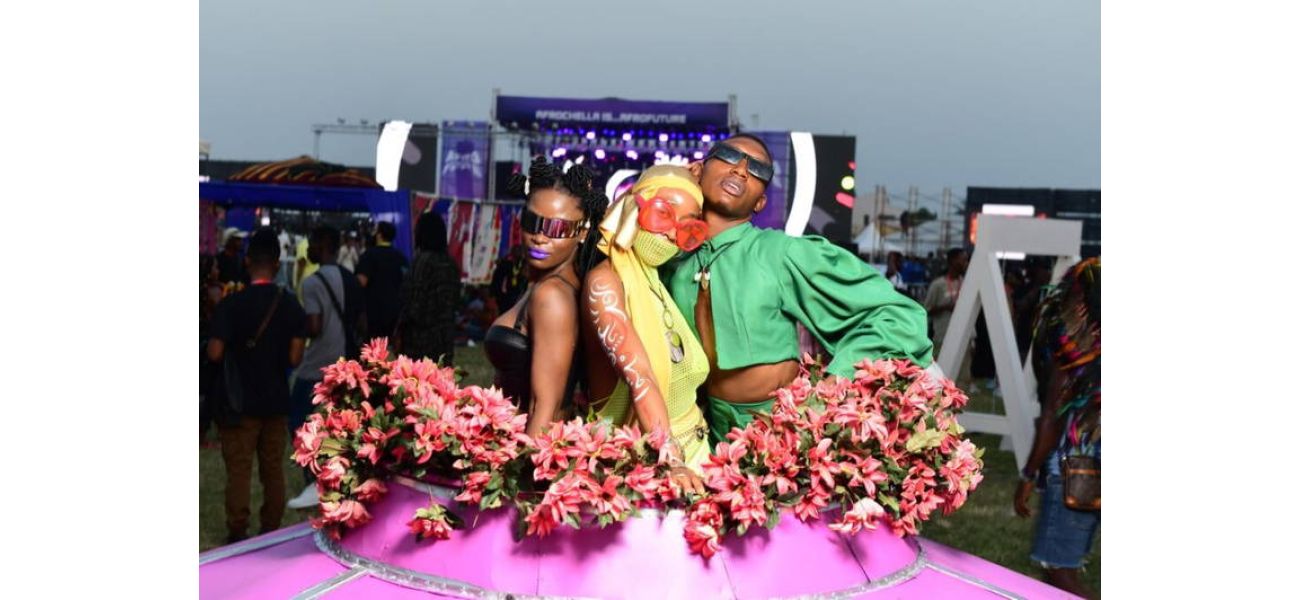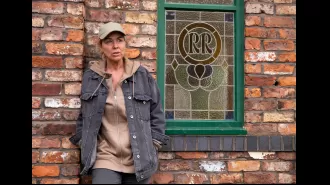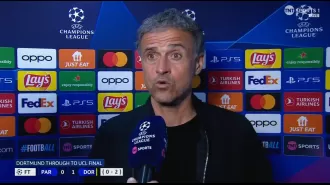Exciting news! AfroFuture Detroit 2025 is making a big impact in the city and the diaspora community is showing their support.
Great atmosphere!
August 28th 2025.

The AfroFuture Detroit festival was a vibrant and exciting event, taking place in the bustling streets of the city from August 15th to 17th. As a city known for its rich cultural influence, Detroit was the perfect setting for a festival that showcased a future built on African heritage and global innovation.
With a diverse line-up of talent, the festival drew in crowds from all over. The audience was electrified by the performance of Ghanaian artist King Promise, who was surprised with a custom cake from Hennessy in honor of his birthday. And on the final night, Davido gave a powerful closing performance, while Tee Grizzley brought his hometown crowd to their feet.
But it wasn't just about the music. The South African duo TXC brought the rhythms of amapiano to the stage, adding to the festival's international flavor. And in a notable partnership, Hennessy brought its Highline space to the festival, offering a unique experience that combined African heritage with modern mixology. NBA players Nickeil Alexander-Walker and Reggie Jackson were among the many attendees who gathered at the Highline to enjoy specialty cocktails like the Henny-Rita, while taking in live art, DJ sets, and interactive displays.
But the festival's impact extended far beyond the stage. AfroFuture Detroit 2025 was also a showcase for Black-owned businesses, highlighting the economic potential at the heart of Afrofuturist principles. Prominent figures like Jackie Aina, who discussed her brand Forvrmood, further solidified the festival's role in promoting a progressive narrative. From the first drink to the last song, AfroFuture Detroit 2025 was more than just an event; it was a powerful statement that the future is being built one beat and one invention at a time.
One of the most powerful elements of the festival was the deliberate gathering of the global Black diaspora. Attendees proudly carried flags from countries like the U.S., Jamaica, Haiti, Nigeria, Kenya, Senegal, Ghana, and Djibouti, creating a heartwarming display of unity. This was more than just a symbolic gesture; it was a purposeful meeting of shared history and diverse expressions of Black identity.
The festival's ability to bring together a family separated by continents was a remarkable achievement. Despite the physical distance, the bonds of culture, rhythm, and common experience were still strong. It was a testament to the fact that when a venue is established to celebrate the entire spectrum of Black identity, the diaspora will find its way home to connect, create, and celebrate.
AfroFuture Detroit 2025 went beyond the traditional festival structure to become a crucial forum for cultural exchange and progressive dialogue. In addition to the performances, the event also featured curated discussions that explored the connections between art, technology, and social action. Leaders from fields such as urban planning and digital innovation came together to discuss how the principles of Afrofuturism can be applied to create more equitable and sustainable communities in Detroit and beyond. This emphasis on practical strategy set the festival apart and shifted the conversation from possibility to active construction.
Akosua Ayim, the festival's COO, spoke about the significance of holding the event in Detroit, saying, "We chose Detroit because of the richness of Black culture, the city's influence on the world of music, and the creativity and innovation that it embodies. AfroFuture is a cultural entertainment platform with the goal of bridging the gap between the diaspora and the rest of the world."
Community participation was a crucial aspect of the festival, with local artisans and entrepreneurs filling the marketplace with a diverse range of products that showcased the strength of Detroit's creative economy. This support for Black-owned businesses was a clear indication of the festival's commitment to creating wealth and opportunity within the community. The interactive art installations provided spaces for attendees to engage with one another and with the concepts on display, fostering a sense of shared purpose. The U.S. debut of the festival was a tribute to Detroit's central role in cultural movements, making a clear statement that the city, known for its history of change, is now at the forefront of shaping a future where technology and identity are celebrated together.
With a diverse line-up of talent, the festival drew in crowds from all over. The audience was electrified by the performance of Ghanaian artist King Promise, who was surprised with a custom cake from Hennessy in honor of his birthday. And on the final night, Davido gave a powerful closing performance, while Tee Grizzley brought his hometown crowd to their feet.
But it wasn't just about the music. The South African duo TXC brought the rhythms of amapiano to the stage, adding to the festival's international flavor. And in a notable partnership, Hennessy brought its Highline space to the festival, offering a unique experience that combined African heritage with modern mixology. NBA players Nickeil Alexander-Walker and Reggie Jackson were among the many attendees who gathered at the Highline to enjoy specialty cocktails like the Henny-Rita, while taking in live art, DJ sets, and interactive displays.
But the festival's impact extended far beyond the stage. AfroFuture Detroit 2025 was also a showcase for Black-owned businesses, highlighting the economic potential at the heart of Afrofuturist principles. Prominent figures like Jackie Aina, who discussed her brand Forvrmood, further solidified the festival's role in promoting a progressive narrative. From the first drink to the last song, AfroFuture Detroit 2025 was more than just an event; it was a powerful statement that the future is being built one beat and one invention at a time.
One of the most powerful elements of the festival was the deliberate gathering of the global Black diaspora. Attendees proudly carried flags from countries like the U.S., Jamaica, Haiti, Nigeria, Kenya, Senegal, Ghana, and Djibouti, creating a heartwarming display of unity. This was more than just a symbolic gesture; it was a purposeful meeting of shared history and diverse expressions of Black identity.
The festival's ability to bring together a family separated by continents was a remarkable achievement. Despite the physical distance, the bonds of culture, rhythm, and common experience were still strong. It was a testament to the fact that when a venue is established to celebrate the entire spectrum of Black identity, the diaspora will find its way home to connect, create, and celebrate.
AfroFuture Detroit 2025 went beyond the traditional festival structure to become a crucial forum for cultural exchange and progressive dialogue. In addition to the performances, the event also featured curated discussions that explored the connections between art, technology, and social action. Leaders from fields such as urban planning and digital innovation came together to discuss how the principles of Afrofuturism can be applied to create more equitable and sustainable communities in Detroit and beyond. This emphasis on practical strategy set the festival apart and shifted the conversation from possibility to active construction.
Akosua Ayim, the festival's COO, spoke about the significance of holding the event in Detroit, saying, "We chose Detroit because of the richness of Black culture, the city's influence on the world of music, and the creativity and innovation that it embodies. AfroFuture is a cultural entertainment platform with the goal of bridging the gap between the diaspora and the rest of the world."
Community participation was a crucial aspect of the festival, with local artisans and entrepreneurs filling the marketplace with a diverse range of products that showcased the strength of Detroit's creative economy. This support for Black-owned businesses was a clear indication of the festival's commitment to creating wealth and opportunity within the community. The interactive art installations provided spaces for attendees to engage with one another and with the concepts on display, fostering a sense of shared purpose. The U.S. debut of the festival was a tribute to Detroit's central role in cultural movements, making a clear statement that the city, known for its history of change, is now at the forefront of shaping a future where technology and identity are celebrated together.
[This article has been trending online recently and has been generated with AI. Your feed is customized.]
[Generative AI is experimental.]
0
0
Submit Comment





